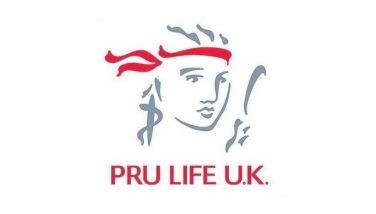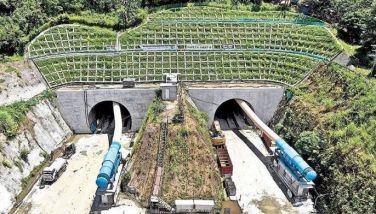Economic challenges for next president

Finance Secretary Sonny Dominguez summed up the economic challenges for the next president and they are daunting. Almost makes me wonder why anyone wants to be president, assuming they have a clean heart and the best intentions.
Sec. Sonny identified the four big challenges as ballooning domestic debt, high global inflation, worsening inequality, as well as climate change. I want to add two more, food security and the continuing COVID pandemic.
This is why voters must be very careful in selecting the next president. Popularity alone or even the goodness of heart alone are not enough. We need a new president who is not part of the political oligarchy that has ruined our economy and has the training to nurse the economy back into the pink of health.
Some are quick to blame Sec. Sonny, as Duterte’s economic manager, for the economic problems he mentioned. But let us not forget that Sec. Sonny has had to deal with the challenge of financing our pandemic response.
We have seen how prudent Sec. Sonny has been even in borrowing from abroad. There were those who were urging him to borrow more and take advantage of our good credit rating.
But Sec. Sonny knows our bureaucracy has a serious execution problem and a bad record in quickly and efficiently utilizing allocations for direct assistance to those who need it most. Having more money than the bureaucracy can properly and honestly absorb only leads to temptations like Pharmally.
Now that we have gone into election mode, I guess Sec. Sonny wants to remind everyone, candidates and voters, to think about the serious problems we are facing. Our lives depend on it.
That’s why I earlier suggested that candidates for president be required to name their shadow Cabinet members for the most critical positions. We need to know if their Finance Secretary nominees, for instance, are competent and trustworthy.
We also need to hear the candidates themselves speak of how they view the problems brought up by Sec. Sonny. So far, I have heard nothing but platitudes and populist solutions like suspending oil product taxes.
So, can we hear the presidential hopefuls tell us how they plan to manage the debt we have accumulated and grow our GDP?
Our borrowings ballooned because of weaker revenue collections due to the pandemic-induced economic slump. Government also had to spend more to assist distressed families during lockdowns and to finance the increased requirements of our shaky health system.
The increased borrowings brought up the Philippines’ debt-to-GDP ratio, which is used to measure an economy’s ability to repay its obligations, to 54.6 percent in 2020 from a record-low 39.6 percent in 2019.
By end-September, our debt-to-GDP further climbed to a 16-year high of 63.1 percent, above the 60-percent level deemed by credit rating agencies as manageable among emerging markets. No wonder some ratings agencies have warned us of a potential credit rating downgrade.
Our government’s outstanding debt will further climb to a record P13.42 trillion by end-2022 from the P11.73 trillion programmed by this year’s end.
According to NEDA chief Karl Kendrick Chua, “consumption and investment will be lower in the next 10 years due to lower demand in sectors that require social distancing (e.g., amusement, tourism, restaurants, public transportation). Consequently, tax revenues will be lower.”
So, do the candidates have strategies for fiscal consolidation? Will they be honest about their taxation plans? The next administration may have no choice, despite the election promises, to implement new or higher taxes. Cutting public spending will slow down GDP growth.
Then there is inflation. Our headline inflation rose beyond the government’s two to four percent target range of a manageable rate of increase in prices of basic commodities this year. Basically to blame is the high cost of food, especially pork due to supply shortage.
Managing the inequalities exacerbated by the COVID-19 pandemic is the next big challenge. The most vulnerable sectors like the poor, women, and school children will take longer to recover from the pandemic-induced slump.
Sec. Chua pointed out that for example, no face-to-face classes means less learning and lower future income, productivity, and competitiveness. ADB estimates that each year of lost schooling translates to around 10 percent permanent lower wages in the future.
Then there is climate change. Our farmers and fishermen need support to help them cope with the negative effects of climate change on their livelihoods. Our food security depends on this.
Not to forget… the pandemic is still around. Just when we thought we could relax our restrictions to help our travel industry, this new variant, Omicron, comes around. By now, we must have a better playbook than lockdowns.
We need to invest on our health infrastructure, not just hospitals and health centers, but also on properly compensating our health workers to make it worth their while to serve at home rather than go abroad. PhilHealth must be reformed.
Growing our economy requires investments. Since the government will need all the cash they can muster just to run its operations, the Public Private Partnership concept is the only option.
The big problem is attracting PPP investors after the Duterte administration broke a lot of covenants with past PPP investors like Manila and Maynilad Water. Then there is this nuisance suit against Megawide for supposedly violating the anti-dummy law.
That Mactan Cebu airport contract won by Megawide went through several legal reviews, including a suit filed in the Supreme Court. After delivering on the commitment and winning awards as a model PPP project, Megawide officials are facing this criminal case. That’s how to kill the PPP concept for the future.
A retired investment banker noted that potential foreign investors will stay away after the government refused to accept international arbitral rulings, parametric formula for tariffs, long pending toll adjustments, refusal to accept liability for MAGA (Material Adverse Government Action), which are standard international provisions for PPP.
These are probably not issues raised in presidential campaigns, but are vitally important. The new president will have to address these issues to attract investors, foreign and local, on Day One.
Boo Chanco’s email address is bchanco@gmail.com. Follow him on Twitter @boochanco
- Latest
- Trending

























